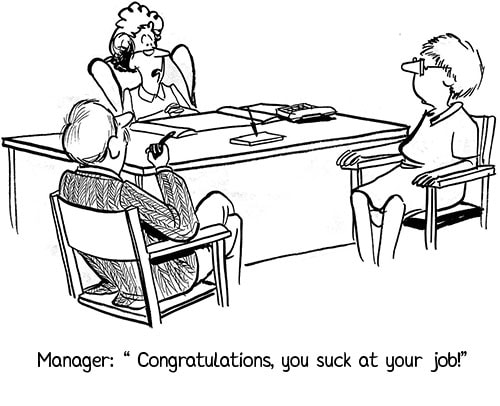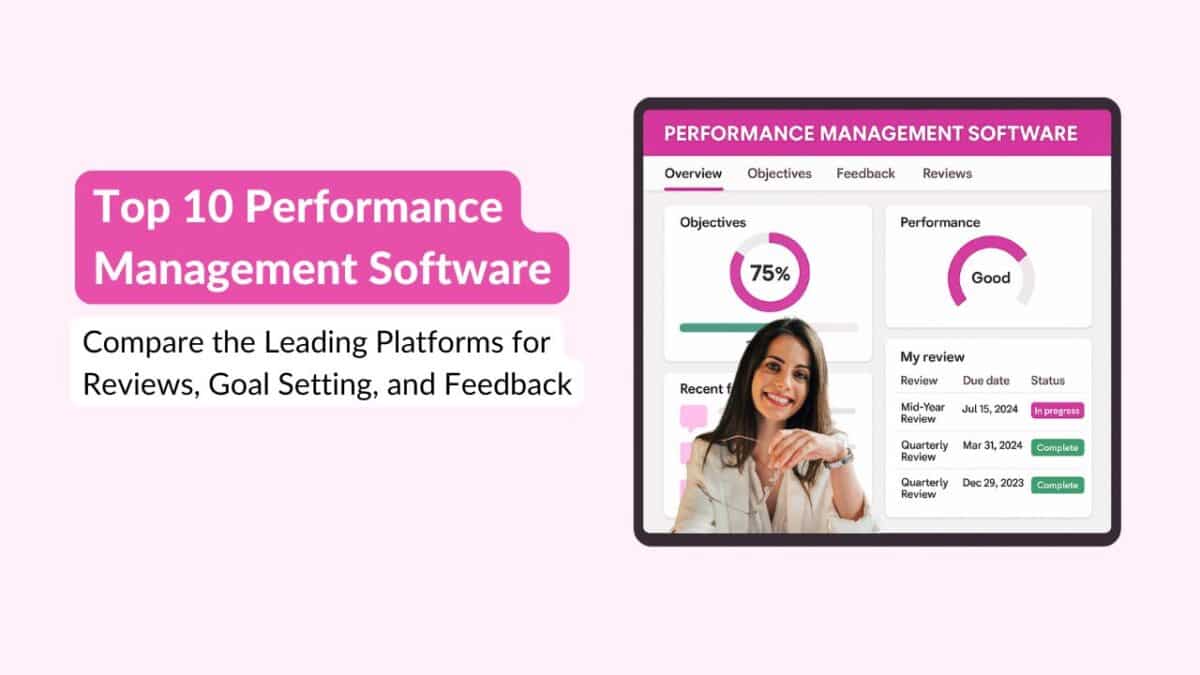Filling out a form about an employee’s performance is fairly easy, but when it comes to providing additional comments, this is the step where many managers stumble.
Writing comments in performance review forms does not have to be rocket science. Consider this article to be a primer on what constitutes appropriate performance review wording.
I’m going to divide the examples into three categories, the good, the bad and the ugly. The purpose of these labels is broad. They are just to give you an idea of what works and what does not.
The Good
Good performance reviews are extremely helpful. All employees want them. But they are not easy to put into words. It’s because providing thoughtful comments that combine appreciation and criticism neatly takes effort.
Use action words – Action words are dynamic and meaningful. “Performs”, “communicates”, “exhibits” and “exceeds” are all examples of action words. Stringing these words along in various combinations should give you some good performance review phrases.
Mention instances of good work – If an employee has done good work, then recognize it in a performance review by mentioning the good work and giving details about it. This makes your comment clear and easy to understand.
Have an outline – Even for something as small as a comment, follow an outline. The outline will make your comment precise and prevent you from rambling. An outline can go like this – describe a situation, describe the employee’s behaviour, the impact of that behaviour and tie it up with a final comment of appreciation!
The Bad & Ugly
I’ve clubbed bad and ugly together because they more or less go together and are equally unhelpful to anyone reading them.
If your performance review phrases contain any of the following or even worse, all of them, then you should probably rework them. Not everybody sets out to write bad comments. However, sometimes if you are not careful with the words and phrases you use, then your comment will sound a lot harsher and critical than you intended it to.
Avoid personal attacks – This is a no-brainer but one that bears repeating. A performance review is not an opportunity for you comment on somebody’s appearance, gender, health, etc.
Avoid completely negative comments – When making a comment about an employee’s lack of performance, instead of writing a scathing rebuke, you need to state the problem and provide a solution too. And in a way that is not incendiary.
Be careful about language – Avoid words such as “pathetic, “useless, “annoying” etc. These words are demeaning and can cause an employee distress.
Performance reviews are not rocket science. With a little practice, you can become good at them. Before you submit your review, it’s best to read out loud and imagine yourself as the recipient. Would you approve of the review or would it annoy you? Using yourself as a yardstick of measure can go a long way towards helping you write better performance reviews!
Engagedly is a performance review software that incorporates elements of employee engagement. To know how Engagedly can help your organization with performance reviews, request a demo!
Request A Demo
Author
Srikant Chellappa
CEO & Co-Founder of Engagedly
Srikant Chellappa is the Co-Founder and CEO at Engagedly and is a passionate entrepreneur and people leader. He is an author, producer/director of 6 feature films, a music album with his band Manchester Underground, and is the host of The People Strategy Leaders Podcast.






